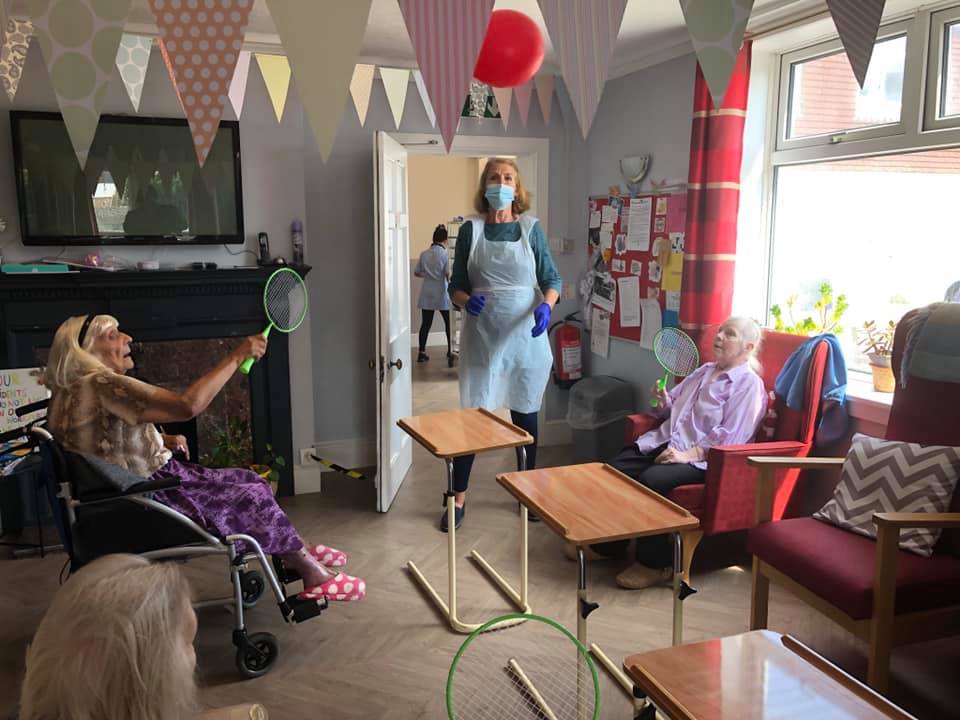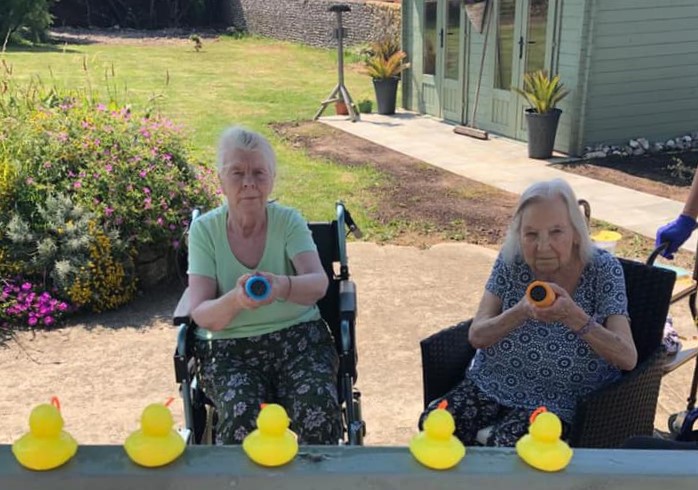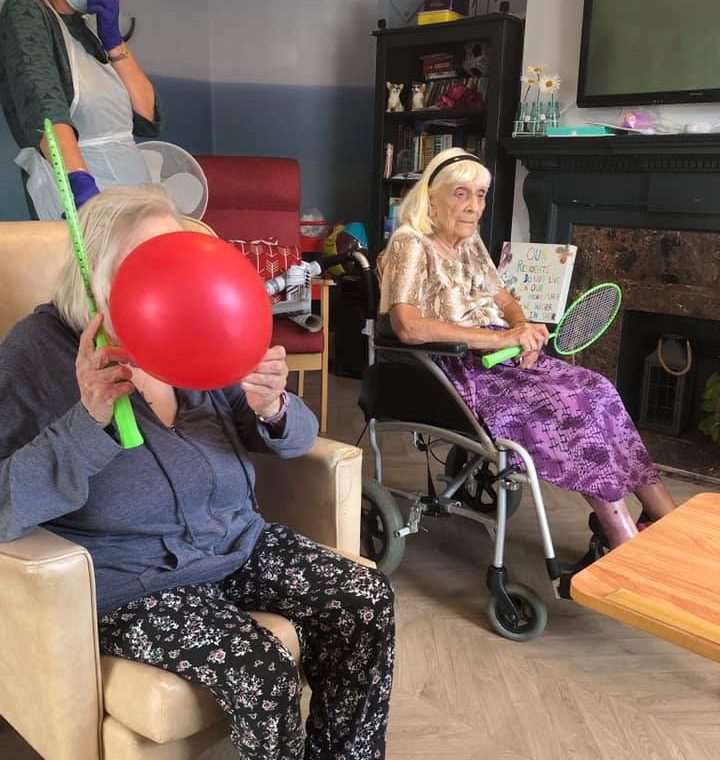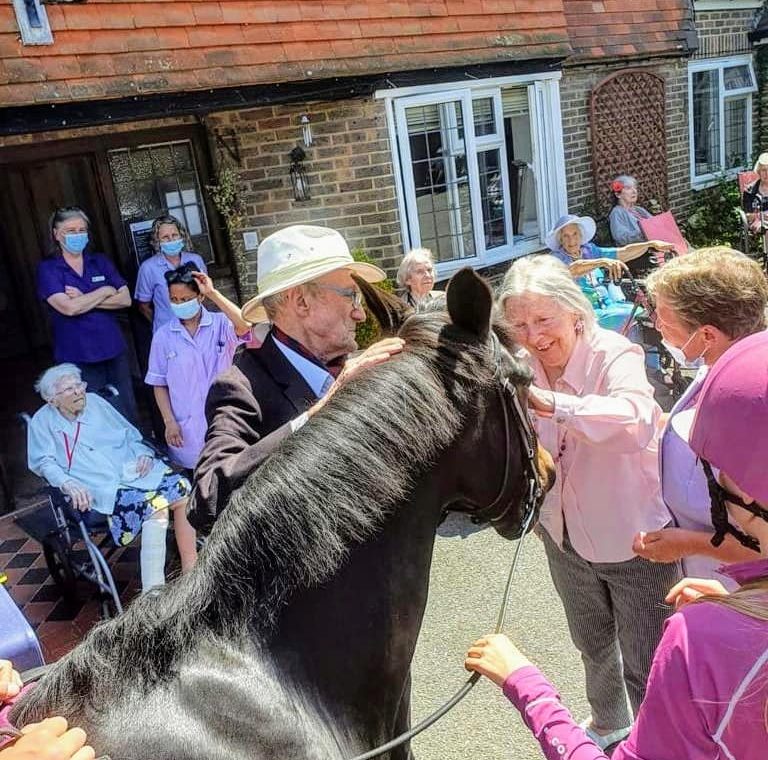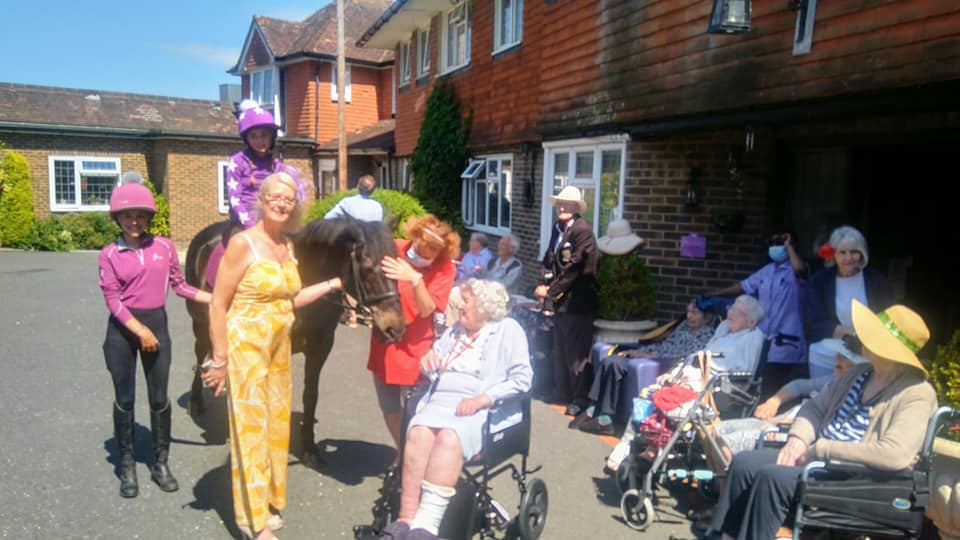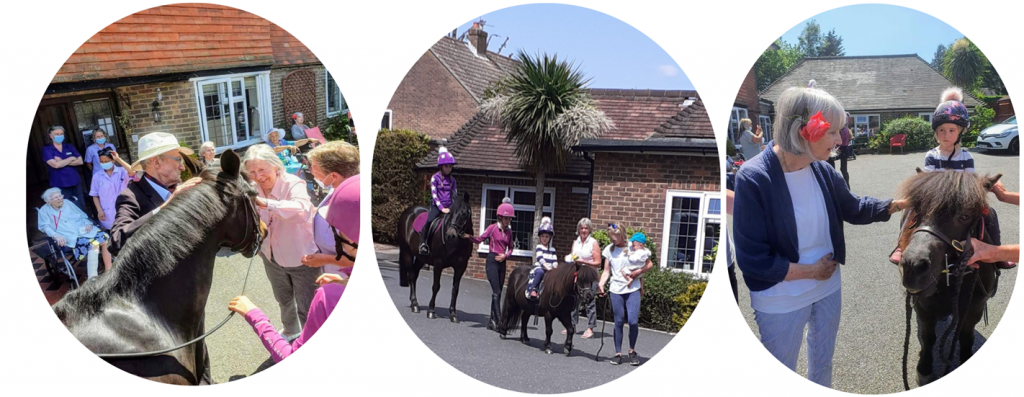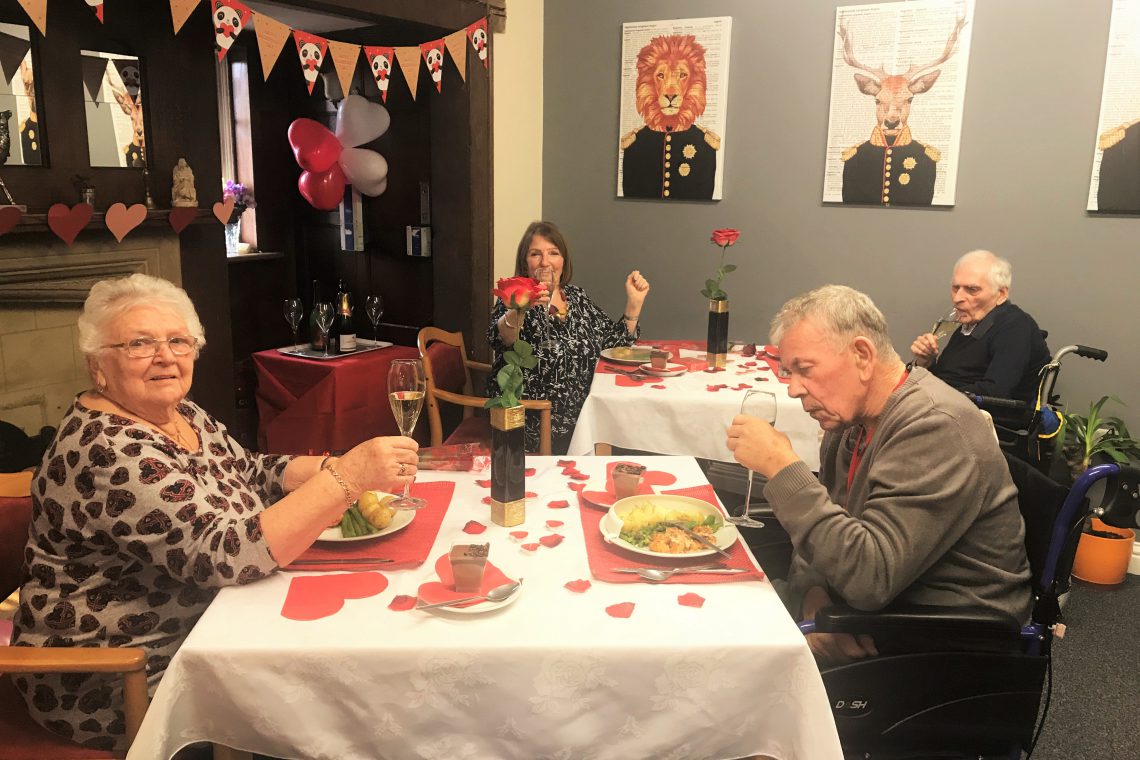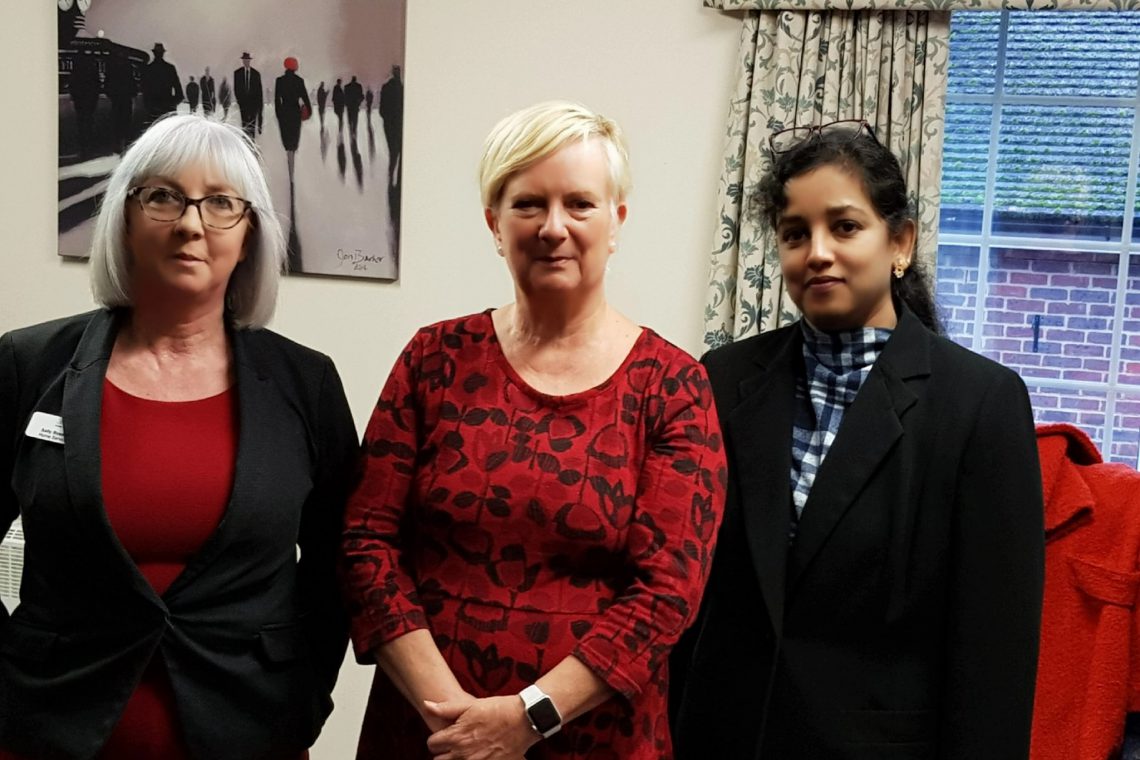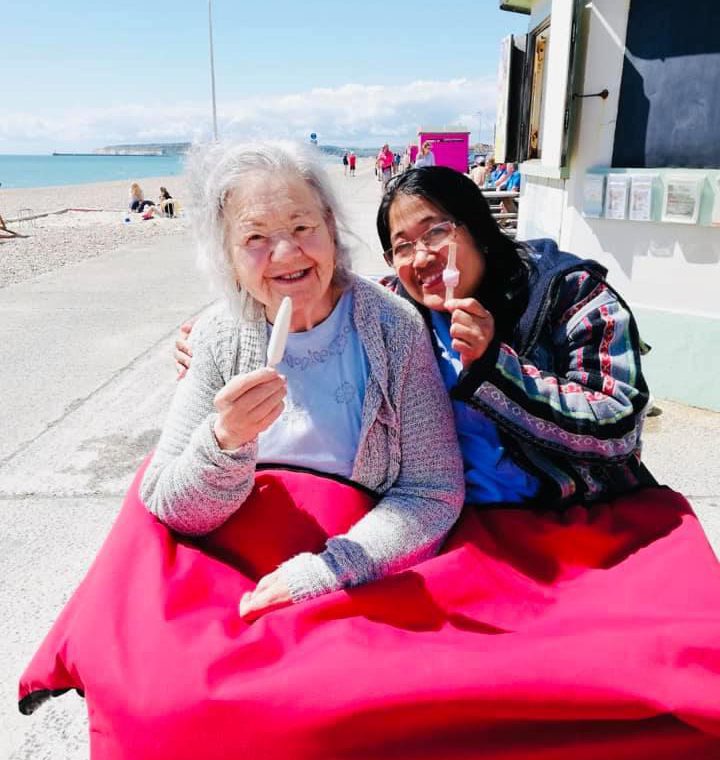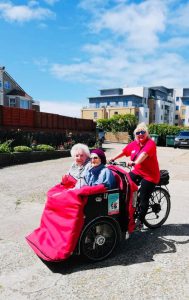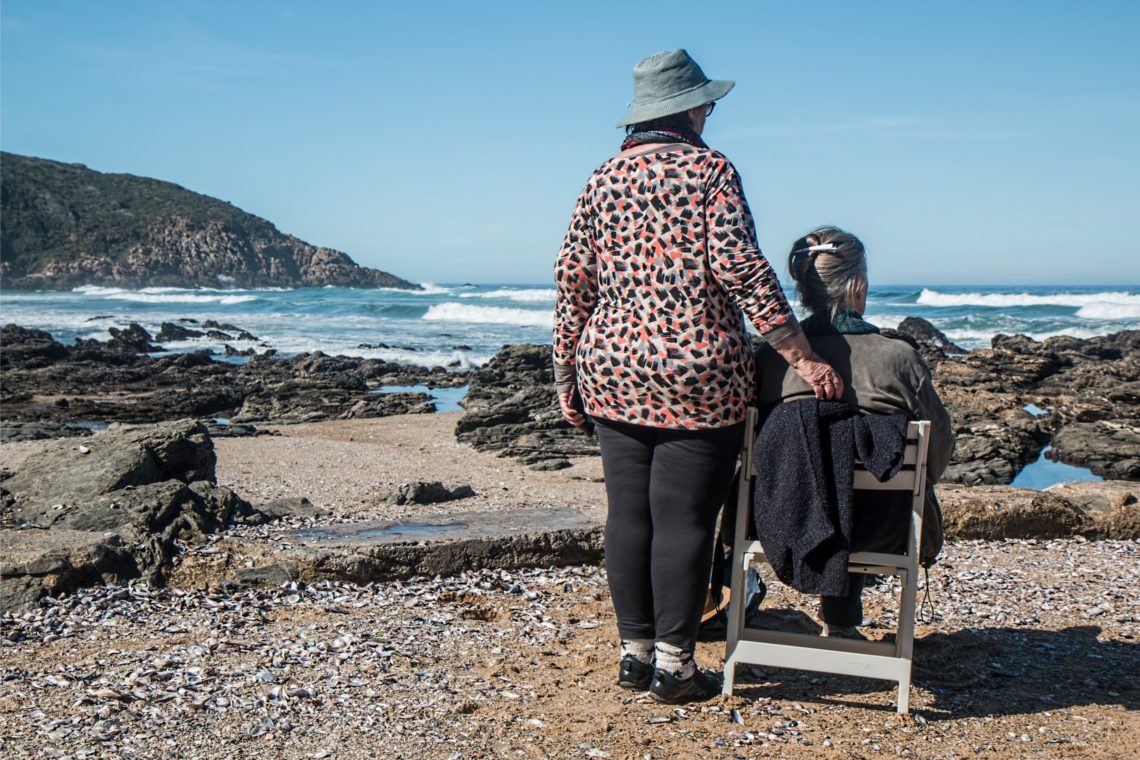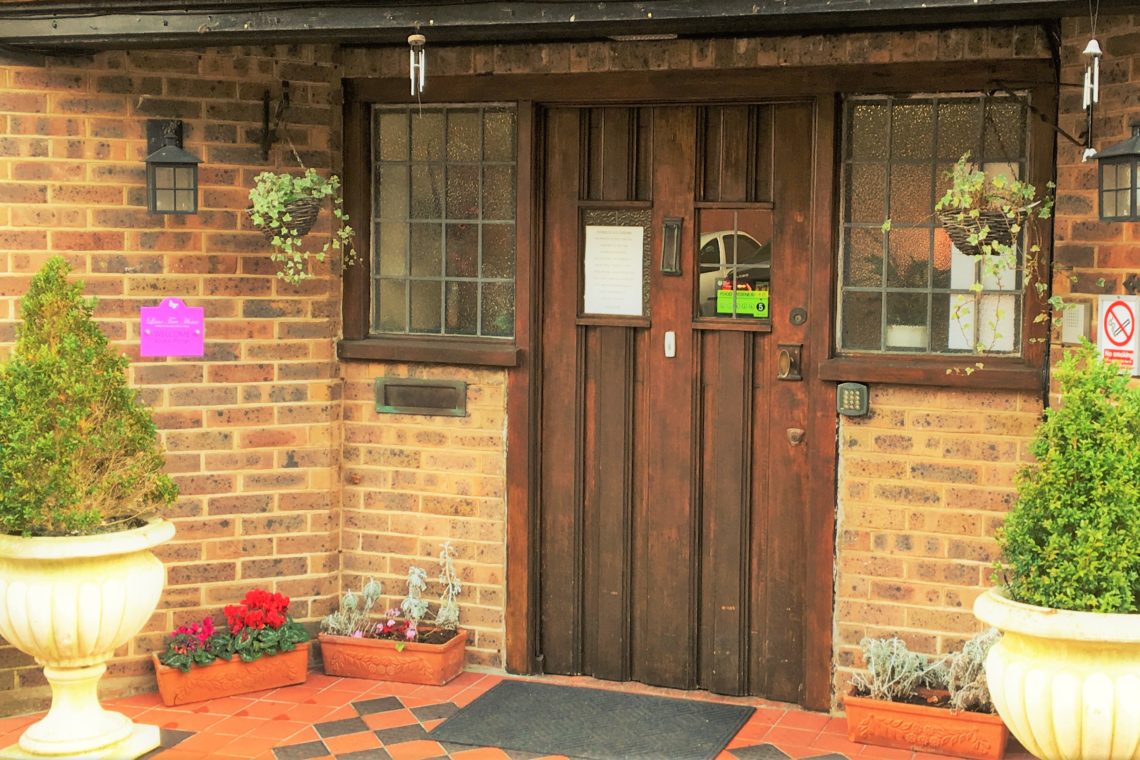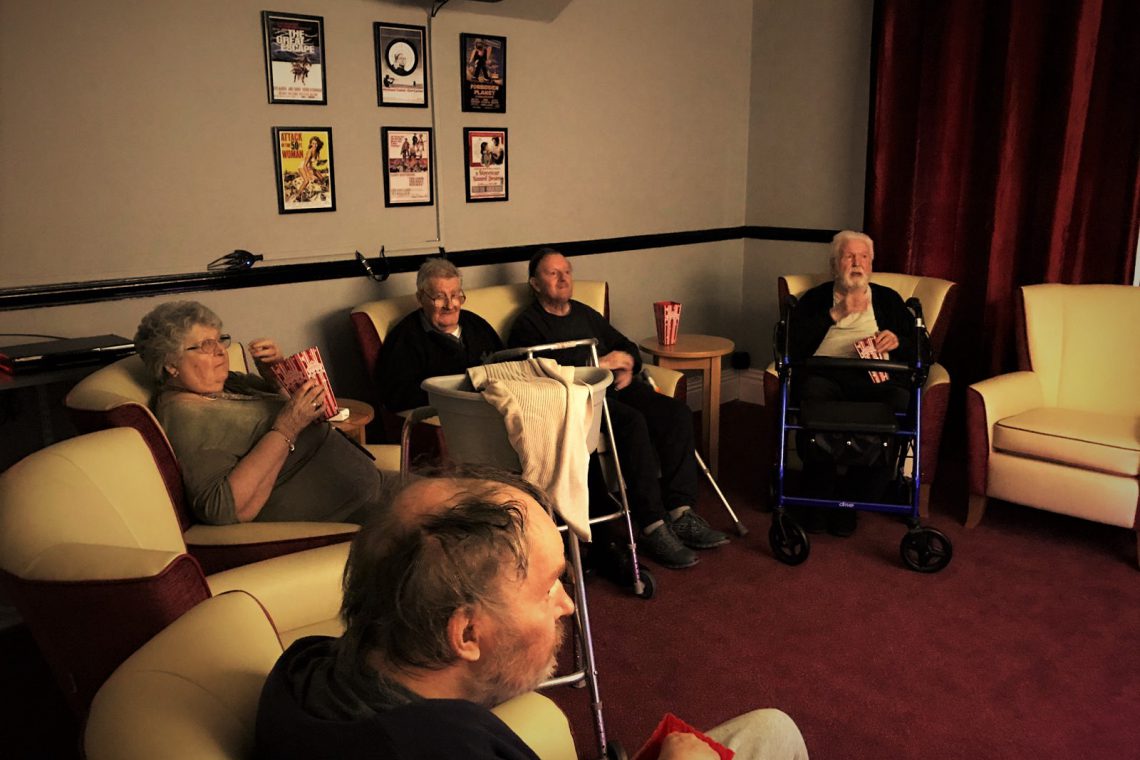Love was in the air at Heatherdene this Valentine’s Day when we treated two of our residents and their wives to a romantic Valentine’s couples’ lunch. The two couples’ combined years of marriage add up to a total of 84 years! And as it was Valentines Day, we took the opportunity to hear about their love stories, and what marriage means to them lives before they tucked into their lunch.
We may not be the biggest care home in Bexhill, but our Manager, Beena George, and her staff are able to dedicate more quality time to their residents on an individual basis. An example of this was on Valentine’s Day.
Michael and Patricia’s Story
One of the couples, Michael and Patricia were already in the front lounge. Heatherdene’s lounge was bedecked with hearts, petals, candles and the specially made Valentines playlist, such as Lady in Red, Frank Sinatra as well as some other classic love songs playing softly in the background.
Michael, one of our dear residents, made his wife Patricia a Valentine’s card which she was very pleased to receive. The couple have been married for 31 years and their wedding anniversary was on 3rd February. We asked her a few questions about her and Michael’s love story.
How did you meet your
husband?
“It’s a funny story really. My first husband collapsed one day at home. I panicked and rushed outside to get someone to help me. There was a man standing outside the shops waiting for his wife.
A Stranger to the Rescue
I approached him and asked him to help me, saying my husband had collapsed. The man and his wife came and were a marvellous help to me. The ambulance arrived and my husband had had a heart attack and sadly later passed away. But I didn’t get a chance to thank the couple that had helped me – they disappeared when the ambulance arrived and I hadn’t even had a chance to get their names.
“I later found out their names and where they lived and sent a bouquet of flowers to thank them. We didn’t meet after that for about ten years, when we both worked for the council. We would see each other around the offices but I didn’t know he was divorced. He later came into the restaurant, told me he was divorced and asked me out for a drink.
“So, the first time I ever set eyes on him was the day my first husband died. But it was 10 years later that we were married. That’s my story. We’ve been together ever since.”
How did he propose?
“Well, he didn’t go down on
knee that’s for sure! He just asked me and I said yes.”
What would you say is the key
to a happy marriage?
“You can’t go through
marriage without some ups and downs but Michael is such a patient man I’ve
never met anyone so patient. His motto is anything for a peaceful life. We’ve
been alright and I think it’s because we’re different that we got on so well.”
Sadly, Michael suffered a
stroke in September of last year which meant him coming to Heatherdene Nursing
Home. This no doubt changes things for any couple when they’re apart but
Patricia didn’t let that phase her.
“Apart from one day over
Christmas, I’ve visited Michael every day for the last eight weeks since he’s
been here. Of course, I’d love for him to be at home it’s a big change not
having him around after 30 years. But he’s being looked after properly and it’s
nice for me to think that that he’s in this cosy home.” Patricia also told
me her and Michael had a great-grandchild born that very morning of Valentine’s
Day!
Paul & Joan’s Story
Paul and Joan were in the
home’s other lounge, mainly used for activities. They were joining in the
morning’s activity, Tots Playtime, where Heatherdene hosts a baby yoga session
for mothers and their babies. It’s a great time for the elderly ones to
interact with some so young and it really lifts everyone’s spirits, hearing the
gurgles and giggles of babies.
Joan, wife of Paul, managed
to have a talk with us about their life and love story. Paul and Joan have been
married for 54 years. And will be celebrating their 55th wedding anniversary
next Wednesday 26th February!
How did you two meet?
“Paul was my first love. It all began when Paul was supposed to play football one day but he couldn’t because he had to attend a family wedding. It was arranged my brother play in Paul’s absence. Unfortunately, my brother broke his leg playing so Paul came round to see him at our house … and that was it. Paul was quite the romantic. He used to send me sweet little notes setting out the hours, minutes and seconds until he would see me again, bless him.”
Dedication Despite Difficulty
Paul was sadly diagnosed with
dementia in 2007 and, although it developed slowly, it eventually caught up
with Paul. Joan cared for him as long as she could at home but he eventually
moved into a care home.
“Paul has lost the power of speech and use of his legs but he can talk with his eyes. I promised I would look after him always and I will. I’m so happy I can still be there for him.
“However, as our lovely
daughter pointed out, her father has had a wonderful life and did everything he
wanted to. We have some very happy memories with each other over the years,
including our many trips to Sidmouth in Devon & the Lake District – a
place we loved very much.”
What, in your opinion, is the
key to a happy marriage?
“Laughter – well, having a
sense of humour and doing things together. Paul was a man’s man and would go to
greyhound racing, manage football teams, and watch cricket and we socialised at
the Sydenham Sports Club. Therefore, we had our independence but we were always
there for each other; that independence has helped me now that Paul is in
a nursing home, even though being apart is still very hard.
“He has settled into Heatherdene and is happy and content and has a lovely room there and if he’s happy and content then so am I. He is my inspiration.”
Joan, wife of Paul, 54 years married.
A Happy Day of Ageless Love
Both couples then enjoyed a lovely meal prepared by the home’s chef and even had a glass of Prosecco or two! It was so lovely that they could share their stories with us and a wonderful privilege for Heatherdene to give something back to these two happy couples.
It was also very touching to see such devotion, especially from Joan and Patricia, who continued to support their husbands and it was wonderful they could share this special day together. Despite their hardships, both Paul and Joan and Michael and Patricia have grown old together, happy and still very much in love. They demonstrated how love can truly stand the test of time.
This touching story even made it into our local paper, The Bexhill Observer: https://www.bexhillobserver.net/news/people/read-the-touching-love-story-of-how-two-bexhill-care-home-residents-met-their-wives-and-what-marriage-means-to-them-1-9241183
